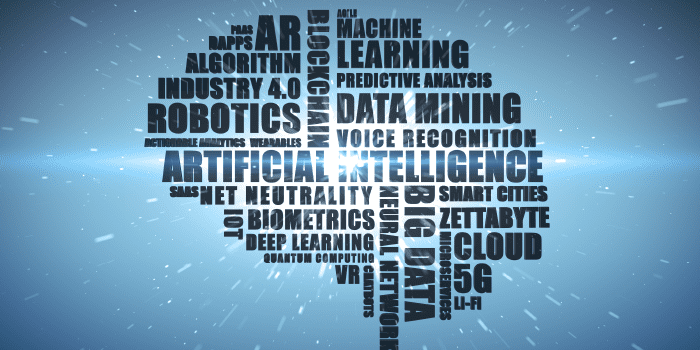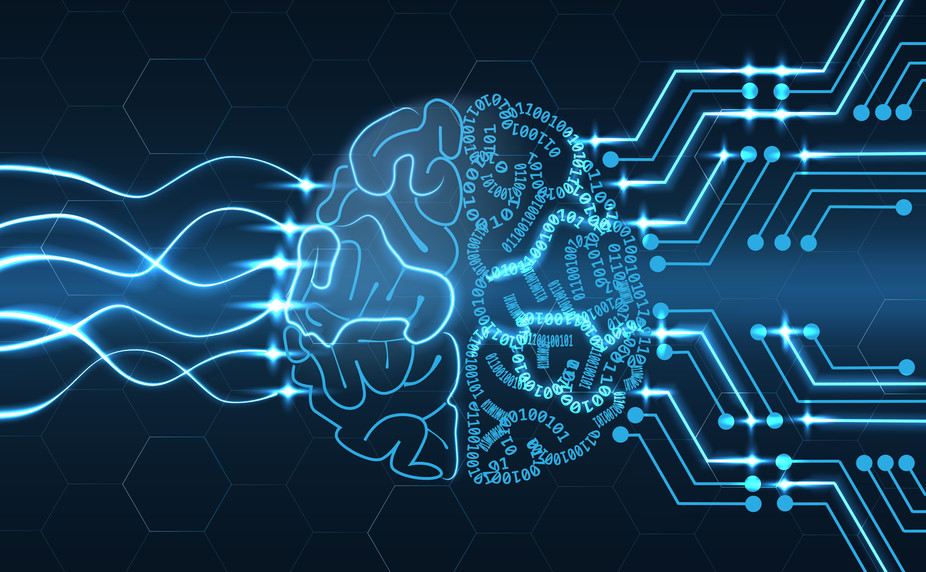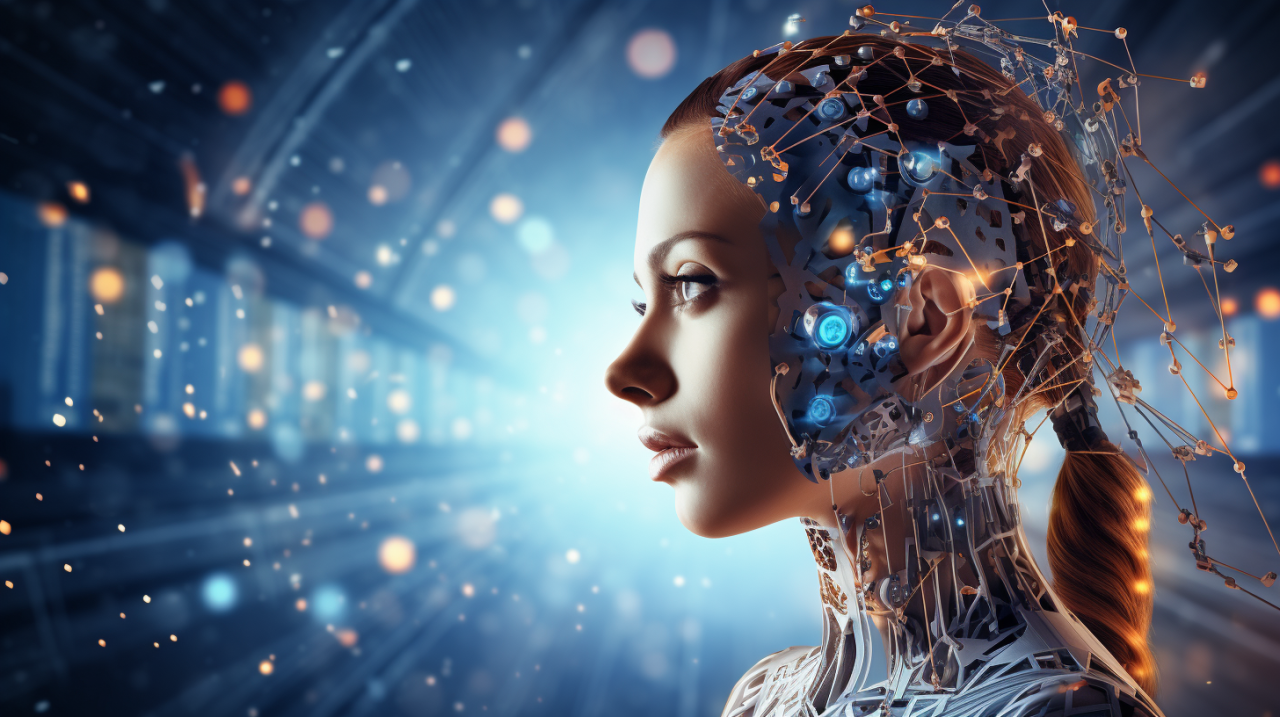Crafting the Future: Comprehending the Dynamic Generative AI Company Landscape
Crafting the Future: Comprehending the Dynamic Generative AI Company Landscape
Blog Article
From Data to Creativity: Checking Out the Effect of Generative AI in the Area of Expert System
Expert system (AI) has transformed many industries, from healthcare to fund, by leveraging data-driven formulas to uncover important understandings. The capacity of AI goes far beyond mere information evaluation. With the development of generative AI, a brand-new age is emerging, one that explores the intersection of information and creative thinking. This amazing growth holds extensive effects for the field of expert system, as it promises to transform not just just how we recognize and make use of data, but also just how we come close to the innovative process. By harnessing the power of generative AI, we can open the capability for devices to generate initial and creative web content. In this conversation, we will dive right into the impact of generative AI in the world of expert system, examining its prospective to change imaginative industries, assist in human-computer partnership, and increase important moral considerations. Join us as we discover the interesting trip from data to creativity, and find the profound effect generative AI could carry the future of expert system.
The Surge of Generative AI
Generative AI has become a revolutionary field in artificial knowledge, transforming the means makers generate brand-new material and engage with the globe. In the last few years, there has been a substantial rise in the popularity and application of generative AI methods. These strategies enable devices to autonomously produce brand-new and one-of-a-kind web content, such as images, music, and text, without explicit human input.
Among the vital aspects contributing to the increase of generative AI is the accessibility of varied and huge datasets. With the advent of the internet and the proliferation of digital material, huge amounts of data are now easily accessible to AI systems. This wealth of information gives the necessary raw material for training generative AI models, allowing them to discover and simulate human imagination.

Additionally, the boosted computational power and the availability of specialized hardware, such as visual handling systems (GPUs), have actually played a vital duty in the rise of generative AI. These innovations have equipped AI systems to procedure and evaluate vast amounts of information, enabling them to create web content swiftly and effectively.
Changing Creative Industries
The expanding abilities of generative AI, sustained by improvements in deep understanding algorithms and computational power, have caused a transformative effect on creative industries. This modern technology has changed the way creative professionals work, opening up brand-new opportunities and pressing the boundaries of human creative imagination.
Generative AI has actually made it possible for artists to check out brand-new worlds of creative thinking by providing them devices that can produce novel and unique material. For instance, in the field of visual arts, generative AI algorithms can examine existing art work and create new pieces based upon the design and qualities of the input. This not just conserves time yet likewise broadens the imaginative possibilities, permitting artists to try out different styles and methods.
In the music industry, generative AI has additionally had a considerable influence. It can compose new tunes and harmonies, producing songs that was formerly unthinkable. This technology can also mimic the style of distinguished artists, allowing the development of brand-new tunes that seem like they were composed by artists who have actually lengthy passed away.
In addition, generative AI has located applications in other imaginative fields, such as fashion and layout. It can generate brand-new clothing styles, indoor layouts, and building concepts, supplying designers with a riches of ideas and speeding up the imaginative process.
Nonetheless, while generative AI offers interesting possibilities, it likewise raises honest inquiries and difficulties typical notions of authorship and creative thinking. As this technology remains to create, it is important to strike an equilibrium between human imagination and the capacities of AI, making sure that the last outcome mirrors the objectives and creative vision of the human maker.
Enhancing Human-Computer Collaboration
Collaboration between computer systems and human beings is being enhanced through the assimilation of generative AI, resulting in a new age of imaginative opportunities. With the advancements in synthetic intelligence, people are currently able to function closely with computer systems to attain end results that were formerly unbelievable. Generative AI, a part of AI that concentrates on creating new material, has actually changed the means human beings and computer systems collaborate.
Generative AI allows computers to create web content, such as photos, songs, and text, based on patterns and examples given by human beings. This partnership enables people to leverage the computational power of AI systems to enhance their creative procedures. Artists can use generative AI to create brand-new visual ideas or discover various designs, while musicians can create special compositions by working together with AI-generated tunes.
Moreover, generative AI can assist in tasks that call for huge amounts of data processing, such as data evaluation and pattern acknowledgment - generative ai company. By incorporating AI systems into the collaboration procedure, people can leverage the computational capacities of AI to examine complex datasets and remove significant insights
Nonetheless, to make sure successful partnership between computer systems and humans, it is crucial to establish a clear understanding of the functions and responsibilities of each celebration. Human beings need to provide the needed advice and knowledge, while AI systems can aid in the creative procedure by generating opportunities and options. This collaboration in between people and computer systems opens new methods for advancement and creativity, pressing the boundaries of what is feasible in different areas.
Ethical Effects of Generative AI
As we look into the moral ramifications of generative AI, it comes to be evident that this innovative innovation increases substantial issues and factors to consider. Generative AI systems have the ability to produce, create, and imitate human-like content, such as photos, videos, and text. While this has actually opened up new possibilities and possibilities in various areas, it has actually additionally sparked discussions concerning the prospective misuse and honest issues connected with such modern technology.
One of the main problems is the capacity for deepfakes, which are adjusted my sources or fabricated media that can trick and misguide individuals. With generative AI, it becomes much easier for harmful actors to produce convincing deepfakes, resulting in misinformation, reputational damage, and even political manipulation. This poses a threat to the trust we position in digital media and can have significant consequences for societies and individuals.
Another honest factor to consider revolves around the problem of intellectual building. Generative AI systems can develop original content that might infringe upon copyright regulations or elevate questions about ownership and acknowledgment. Establishing the legal rights and obligations in such scenarios comes to be an intricate task, especially when AI-generated web content is equivalent from human-created material.
Additionally, generative AI has the potential to bolster and magnify existing biases and discrimination existing in the training data. If the information utilized to train these systems consists of biased details, the created web content may mirror and continue page those biases, causing prejudiced or unfair outcomes.
Along with these issues, there is additionally a requirement to think about the influence of generative AI on safety and security, personal privacy, and consent. AI systems can gather, assess, and utilize large quantities of individual information, leading to prospective violations of privacy and problems about data security. The permission of individuals whose data is utilized to train and enhance these systems need to be meticulously resolved to make sure ethical methods.

Future Leads and Difficulties
The possible applications of generative AI are vast and varied. Furthermore, generative AI has the potential to improve human-computer interaction by creating extra responsive and intelligent digital aides and chatbots.

One more difficulty is the need for even more advanced formulas and computational power to boost the high quality and effectiveness of generative AI systems. The present restrictions in training time and computational sources hinder the widespread fostering of generative AI in real-world applications.
Final Thought
Ethical implications bordering generative AI has to be thoroughly considered and dealt with. Looking ahead, future prospects and challenges exist in more checking out the capacity of generative AI and discovering a balance in between creative thinking and moral considerations.
Generative AI has emerged as an innovative field in artificial knowledge, changing the browse around this web-site method makers generate brand-new web content and engage with the world. generative ai company.Generative AI has actually made it possible for musicians to discover new realms of creative thinking by using them tools that can create unique and distinct material. Generative AI, a part of AI that concentrates on creating brand-new web content, has transformed the means human beings and computers team up
Generative AI systems have the capability to create, create, and imitate human-like web content, such as pictures, videos, and message. Generative AI systems can create initial web content that may infringe upon copyright regulations or increase questions concerning ownership and attribution.
Report this page